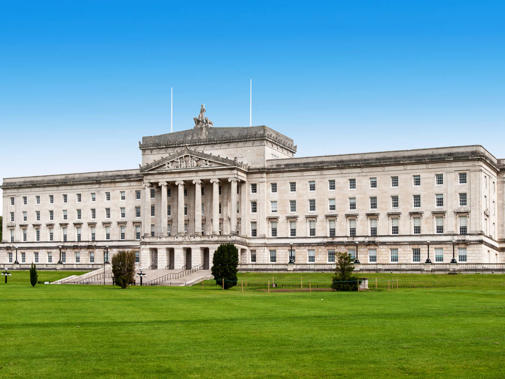Following an election, that saw a seismic shift in voting patterns among the electorate with the meteoric rise of the ‘middle ground’, an unprecedented rise of more than a 100% increase in seats for the Alliance Party from 8 to 17 seats, and a nationalist party in Northern Ireland securing the most seats, it appears, at least on the face of it, that it is all change.
However, what has not changed has been the divisive ‘orange and green’ politics of our past. The DUP, who have been returned as the second largest party and the largest unionist party, have refused to nominate a deputy first minister and elect a speaker of the house. This presents a barrier to reinstating the executive and stops the Assembly from functioning.
The reason the DUP has refused to re-enter the executive is because they say they need action from the Conservative government to override the Northern Ireland protocol. Although assurances have been given in the past, no action has been taken and so the DUP leader Sir Jeffrey Donaldson has said that, unless this issue is resolved and he sees action, devolution cannot return to Northern Ireland.
Prior to the election the DUP had already withdrawn the first minister from their post, which stymied the passage of a bill giving Northern Ireland access to a three-year budget. BMA and many other stakeholders within the health sector believe a three-year budget is essential to facilitate long term planning and the much-needed transformation of the health system.
The only saving grace that stops everything from grinding to a complete halt is legislation recently passed in Westminster enabling the departmental ministers from the 2017-2022 mandate to continue in a care taking role in their previous positions for up to 24 weeks. This means the UUP’s Robin Swann can potentially remain as health minister until the end of October 2022 albeit with no powers to make new, controversial or cross-cutting decisions and until July, and with access to only 45% of last year's budget that was allocated to health.
This is obviously an unsatisfactory and unsustainable position for Northern Ireland to be in, for staff and patients. Waiting lists are spiralling out of control, GPs and emergency department access is severely compromised owing to staff shortages and patient demand is soaring.
What we need now is stability, and for all parties to get back to work immediately to salvage our NHS and deliver a safe, sustainable high-quality and timely service to our patients and begin to address some of critical issues doctors face.
Bernadette Maginnis is BMA senior public affairs adviser in Northern Ireland

